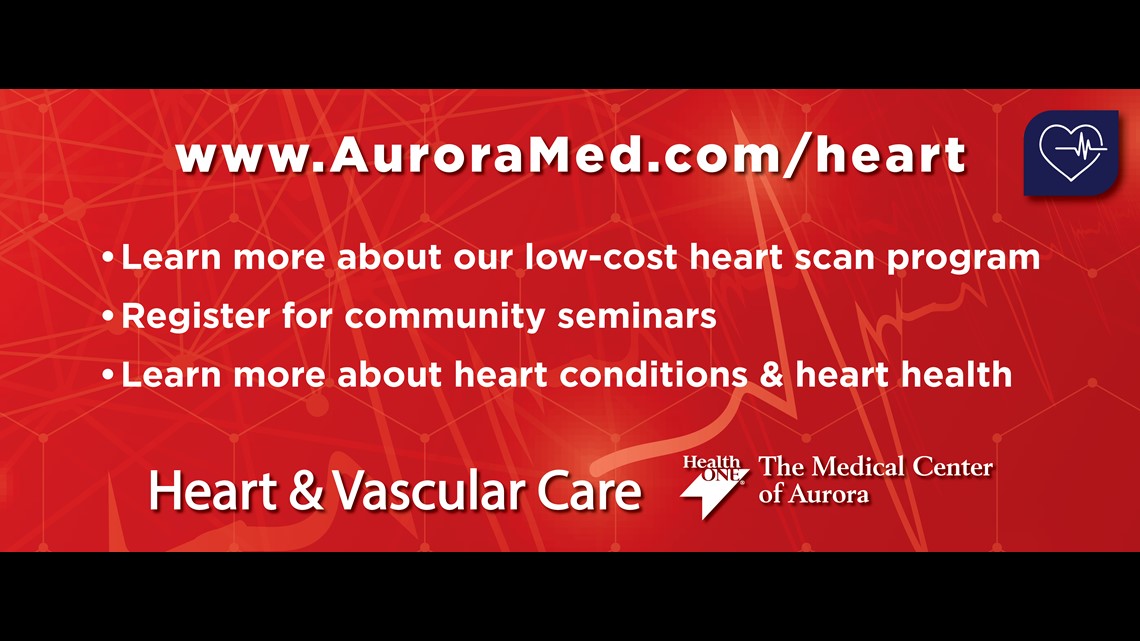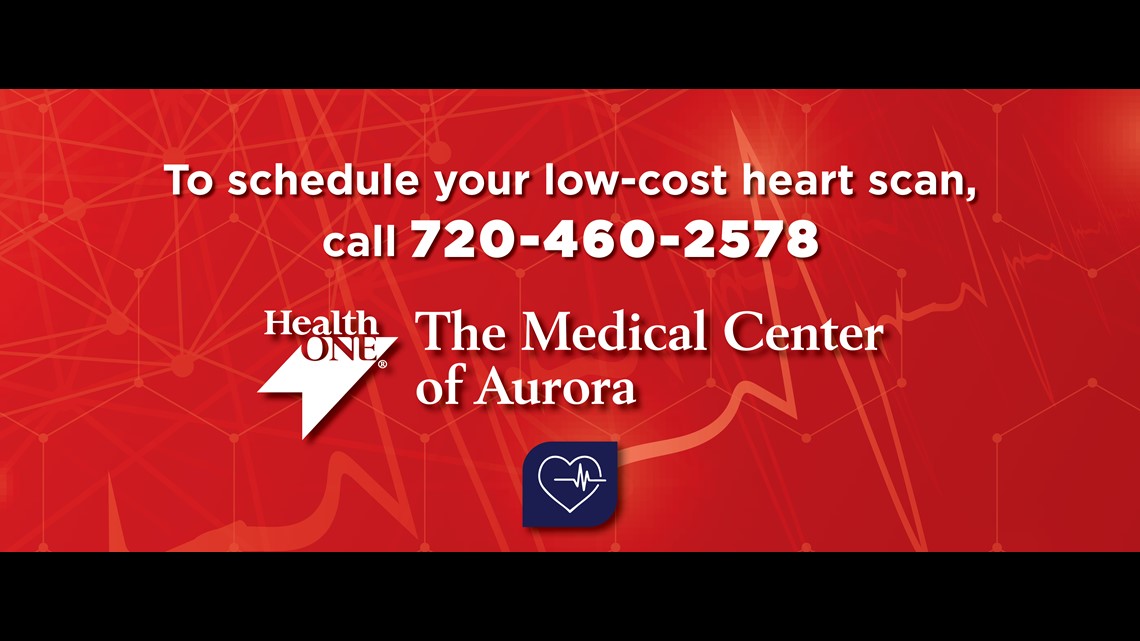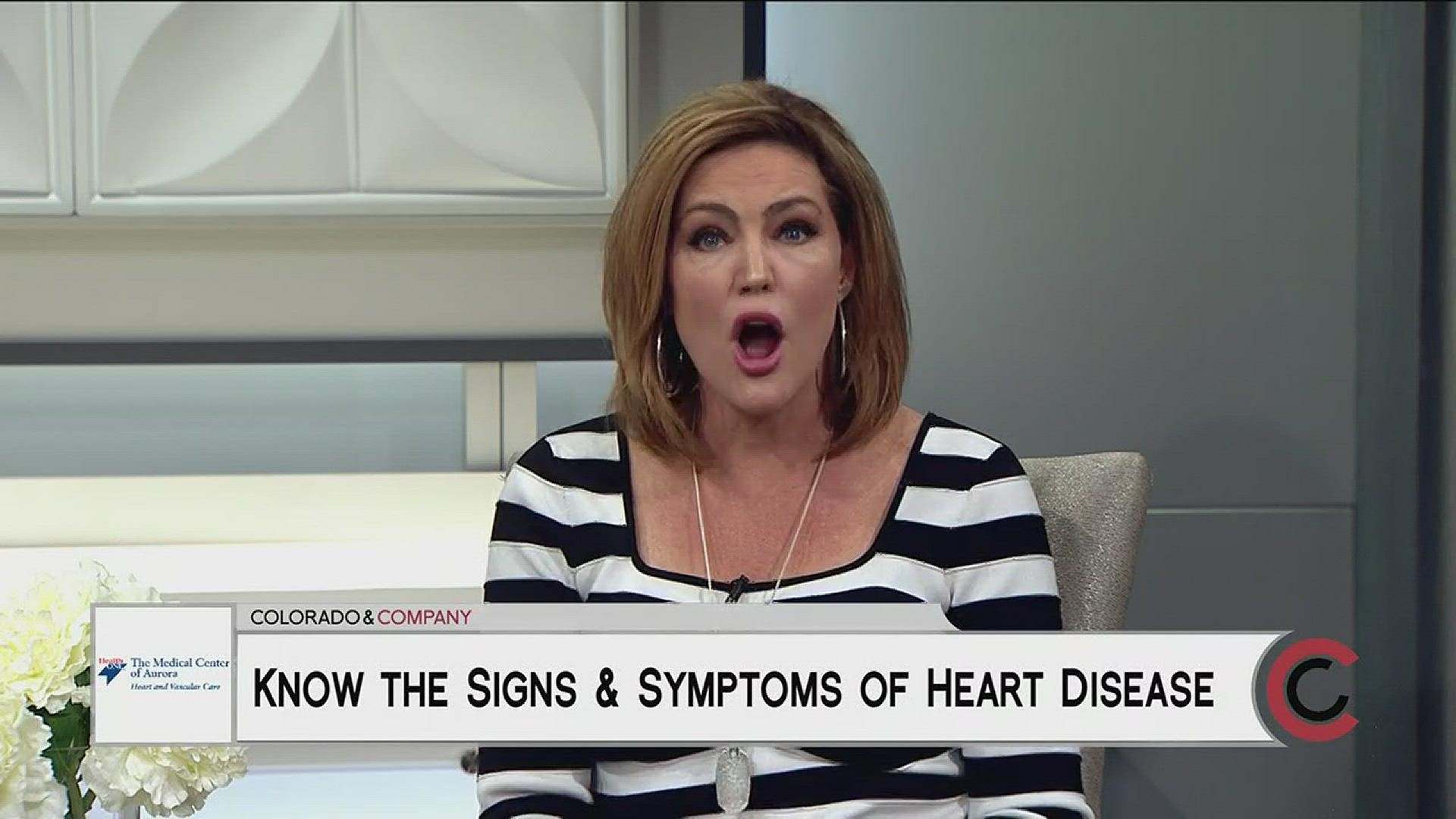DENVER — CONTENT PROVIDED BY HEALTHONE
Heart disease is the leading cause of death for men and women in the United States. One in four deaths are caused by heart disease each year. The good news is it can often be prevented when people make both healthy choices and manage their health conditions.
Here are the 9 symptoms of heart disease everyone should be aware of:
1) Chest Discomfort. It’s the most common sign of heart danger. If you have a blocked artery or are having a heart attack, you may feel pain, tightness or pressure in your chest. The feeling usually lasts longer than a few minutes and could happen whether you’re resting or while you’re doing something physical. You always have this checked by a doctor. If the symptoms are severe and don’t go away after a few minutes, you should call 911.
2) Nausea, Indigestion, Heartburn or Stomach Pain. Women are more likely to report this type of symptom than men. If you feel this way and you know you’re at risk for heart problems, let a doctor find out what’s going on.
3) Pain that Spreads to the Arm. Pain that radiates down the left side of the body is another classic heart attack symptom.
4) You feel dizzy or lightheaded. This could be the cause of several different things especially if you haven’t eaten recently or if you’re dehydrated. But if you suddenly feel unsteady and you’re also noticing chest discomfort and shortness of breath, you need to call your doctor right away.
5) Throat or Jaw Pain. This could be caused by a muscular issue, a cold or a sinus problem. Pain or pressure in the center of your chest that spreads up into your throat or jaw could be a sign of a heart attack.
6) You get exhausted easily. If you’re suddenly feeling fatigued or having issues breathing after doing something you never had a problem doing in the past like climbing the stairs or carrying groceries from the car, make an appointment with your doctor right away. Extreme exhaustion or unexplained weakness can be a symptom of heart disease, especially in women.
7) Snoring. It’s normal to snore a little when you snooze. Unusually loud snoring that sounds like gasping or choking can be a sign of sleep apnea. This puts extra stress on your heart. Your doctor can check whether you need a sleep study to see if you have this condition.
8) Sweating or swelling. Breaking out in a cold sweat for no obvious reason could signal a heart attack. If your legs, feet and ankles are swollen, this could be a sign your heart doesn’t pump blood as effectively as it should. When the heart can’t pump fast enough, blood backs up in the veins and causes bloating. Heart failure can also make it harder for the kidneys to remove extra water and sodium from the body which can lead to bloating.
9) A cough that won’t quit. This usually is not a sign of heart trouble. But if you know you have heart disease, you should pay special attention to this. A long-lasting cough that produces a white or pink mucus could be a sign of heart failure. This happens when the heart can’t keep up with the body’s demands, causing blood to leak back into the lungs.
If you notice any of these symptoms, it’s important to seek medical attention right away. If you think you’re having a heart attack, call 911 and never try to drive yourself to the hospital.


Cardiothoracic & Vascular Surgery Associates provides expert cardiothoracic care in the Denver community. The cardiac, vascular and thoracic surgeon team treats heart, vascular, lung, esophageal and chest wall conditions using advanced surgical techniques and the latest technology. Cardiothoracic & Vascular Surgery Associates is committed to pursuing innovative and individualized treatment plans for each treatment to ensure the best possible outcomes. All the board-certified physicians at Cardiothoracic & Vascular Surgery Associates has extensive training and experience performing a wide range of complex surgeries with a focus on patient recovery and success. Our cardiac and vascular surgeons focus on heart and vascular conditions, while our thoracic surgeons treat conditions of the lungs, esophagus and chest wall. They have three locations to serve the Denver area. Call 303.226.4650 to make an appointment. Online scheduling is also available. Learn more about the award-winning heart care provided at the Medical Center of Aurora by clicking here.
THIS ARTICLE INVOLVES COMMERCIAL CONTENT. THE PRODUCTS AND SERVICES FEATURED APPEAR AS PAID ADVERTISING. DIGITAL MARKETING SOLUTIONS IS A BRANCH OF THE 9NEWS SALES TEAM. FOR MORE INFORMATION, EMAIL US.



